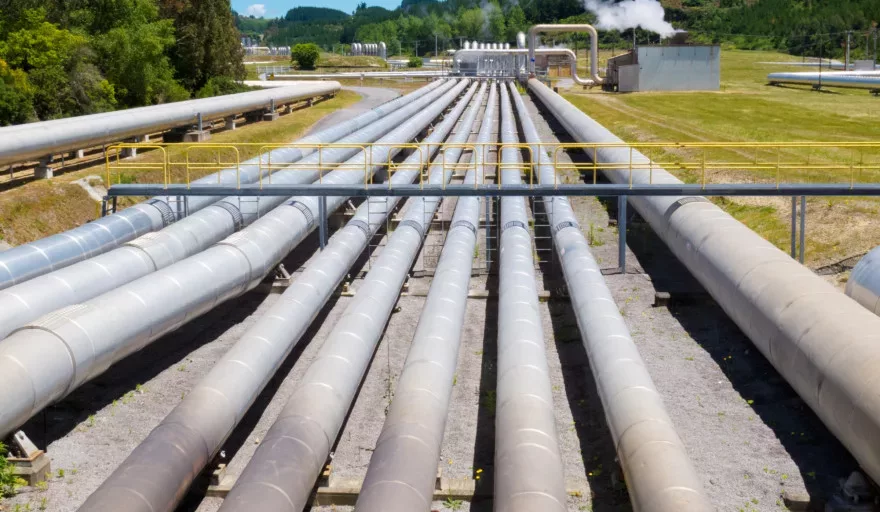The UK’s carbon capture and storage (CCS) industry is celebrating today after the European Commission confirmed it is to award up to €300m to the proposed White Rose CCS project in Yorkshire.
As anticipated, the funding announcement forms the centrepiece of the EU’s latest round of NER300 funding awards, which uses revenue raised from the sale of EU emissions allowances to support the development of cutting-edge clean energy projects.
Today the Commission confirmed that 19 projects will share €1bn of funding, with cash also earmarked for two geothermal energy plants in Croatia and France, two ocean energy schemes in France and Ireland, and seven bio-energy schemes across the bloc.
Cyprus and Italy also both secured funding for new smart grid projects and concentrated solar power schemes, while two Spanish wind power projects shared €67.5m. In addition, Portugal won €8m for the first photovoltaic scheme to benefit from NER300 funding.
“With these first-of-a-kind projects, we will help protect the climate and make Europe less energy dependent,” said Connie Hedegaard, EU Climate Commissioner, in a statement. “The €1bn we are awarding today will leverage some additional €900m of private investment. So that is almost €2bn of investment in climate-friendly technologies here in Europe. This is a contribution to reducing Europe’s energy bill of more than €1bn per day that we pay for our imported fossil fuels.”
However, it is the White Rose project that will grab the headlines, after it became the first CCS project to secure funding through the NER300 scheme. Previous attempts to award European funding to CCS projects faltered after a number of projects failed to meet the criteria for funding. But the White Rose project – which is being pursued by a joint venture involving the Drax power plant, chemicals giant BOC and engineering firm Alstom – has now met the EU’s criteria and is poised to receive the crucial funding.
The project centres on the development of a new 426MW coal-fired power station near Selby in North Yorkshire, which will be able to provide power to over 630,000 homes while also capturing up to 90 per cent of the carbon emissions from the site for storage in geological formations under the North Sea.
The developers have also raised the prospect of the facility co-firing coal with biomass in order to ensure that it delivers power that is effectively zero carbon or even “carbon negative”.
In addition, engineers are hopeful the project can act as a hub for future CCS projects in the region, allowing the north east’s heavy industry to slash its greenhouse gas emissions, while stimulating a new sector that CCS firms say could create up to 6,000 jobs.
Welcoming the decision, UK Energy and Climate Change Secretary Ed Davey, said the White Rose project would ensure the UK remained at the forefront of CCS development. “This is great news for Yorkshire and for Britain. White Rose will create thousands of green, local jobs and make a real difference to cutting carbon emissions,” he said.
“The UK is at the forefront of developing carbon capture and storage, with excellent potential for storage in the North and Irish Seas, and the expertise in operating offshore to make it a reality.
“And as a world leader in the technology, as carbon capture and storage is commercialised Britain, will be in first place to export this knowledge to a decarbonising global economy.”
The final investment decision for the project depends on White Rose also proving successful with its application for funding through the UK government’s £1bn CCS demonstration programme, as well as confirmation that CCS technologies can be integrated into the government’s electricity market reform programme. However, the award represents a major boost to the project and will significantly increase pressure on the government to ensure the development goes ahead.
The announcement was broadly welcomed by industry insiders. Dr Graeme Sweeney, chairman of the Zero Emissions Platform CCS industry and research group, said the funding decision sent “a strong and positive signal” that reaffirmed the importance of CCS deployment in Europe.
“ZEP’s modelling shows that in the coming years CCS can create and secure an estimated total of 330,000 jobs across Europe,” he added in a statement. “The EU’s long-term goal of reducing greenhouse gas emissions by 80-95 per cent by 2050 cannot be met cost effectively without CCS. Achieving our emission reduction goals while maintaining Europe’s industrial base is also essential for competitiveness, job retention and job creation in Europe.”
His comments were echoed by Brad Page, chief executive of the Global CCS Institute, who hailed the proposed White Rose project as the first large-scale oxyfuel project in the world with the ability to use biomass fuel for co-firing. “This means that in addition to capturing nearly 90 per cent of its carbon emissions, under the right circumstances it could reach zero or even negative emissions,” he said. “This project, and several others at advanced stages of planning in the UK and mainland Europe, have the potential to reinvigorate CCS in Europe and help meet the world’s climate targets.”
Dr Luke Warren, chief executive of the CCS Association, said the news marked a real step forward for CCS in Europe. “Globally, CCS is a reality today and crucially the world’s first commercial-scale CCS project fitted to a power station – the Boundary Dam project – begins operation in Canada in September,” he said. “Today’s announcement for White Rose will help to ensure that Europe can begin to catch up with those countries taking a lead on CCS.”
However, he called on the Commission to ensure that CCS technology is included in the EU’s upcoming 2030 climate and energy package to ensure progress continues.
To find out more, visit: http://www.businessgreen.com/bg/news/2354112/breaking-white-rose-ccs-project-secures-crucial-eu-funding



















